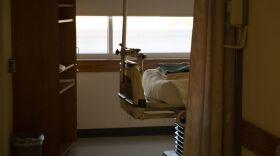Blake Farmer
-
More and more hospitals are contracting with private companies to run their emergency departments. To save money, many are increasingly relying on nurses and physician assistants instead of doctors.
-
Increasingly, private equity firms shape staffing decisions at hospital emergency rooms, research shows. One apparent effect: Hiring fewer doctors and more health care practitioners who earn far less.
-
Clinics that care for long COVID patients are wrestling with how to handle a condition that is still poorly understood and has no widely accepted treatments.
-
When rural hospitals go out of business, they're frequently gone for good. But now, some comebacks are a welcome sign for communities that have been without easy access to health care.
-
Some rural hospitals are in such bad shape, they're selling for next to nothing. One company is snapping several distressed or closed hospitals in rural Tennessee, hoping to turn a profit.
-
Festival promoters are allowing lifesaving medication as fentanyl deaths surge, but volunteers are often left to distribute it, and more controversial forms of harm reduction aren't openly allowed.
-
Reproductive rights proponents worry about the risk of counseling those who seek medication abortions, though they've published online support techniques and guides for safe use of the drugs.
-
The Southern Baptist Convention offered commitments at its closely watched two-day annual meeting in Anaheim, Calif., to address sexual abuse problems kept hidden for years.
-
For COVID patients, ECMO is a last-ditch respiratory treatment in which only about half survive. Yet a new small study suggests many lives would still have been saved if there had been more machines.
-
State medical boards have an obligation to investigate complaints about doctors, such as those who spread COVIC misinformation. But in Tennessee and other states, lawmakers are saying 'not so fast'








